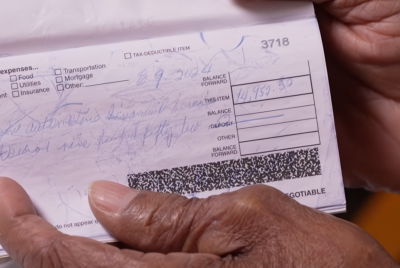Have $500K in Savings? These Are the Top Countries for a Comfortable Retirement
Make your savings work harder with countries offering affordable living, strong healthcare, and vibrant local life

So you've managed to save around $500,000. Bravo. The real question now: how do you make it feel like $500K in the bank — not a stretched version of $500K — when the 'retirement' chapter begins? It's not just about cheap rent, it's about living somewhere you'll wake up excited to sip coffee on your balcony or stroll through streets that feel familiar yet fresh. Below are seven standout countries where you should consider retiring, each with its own personality, perks, and trade-offs.
1. Bulgaria
- Cost-of-living index: 38.3
- Purchasing power index: 68.4
- Grocery cost index: 38.2
- Healthcare quality index: 58.0
- Average rent (1-bedroom): ~$400
Imagine a country where you can live in a charming town in the foothills of the Balkans for the price of a modest US suburb. Bulgaria is one of those places. It's tucked away in Europe's eastern edge but increasingly drawing visitors and expats seeking a gentler pace. Sofia, the capital, is modern and cosmopolitan, but just beyond the city limits you'll find scenic villages, vineyards, and mountain scenery.
Bulgaria's draw lies in its authenticity. The Black Sea coast brings sunny beaches (Varna, Burgas), while ski resorts like Bansko and Pamporovo lure winter lovers. You'll find local markets bursting with produce, a slower way of life, and enough expat enclaves to feel part of a community without losing the sense of discovery. Healthcare can be patchy in remote areas (hence the 'quality index' mid-tier score), so proximity to decent hospitals matters. But for someone wanting to live richly on a modest budget, Bulgaria is one of the most enticing 'quiet-country' bets left in Europe.
2. Croatia
- Cost-of-living index: 45.5
- Purchasing power index: 75.0
- Grocery cost index: 43.5
- Healthcare quality index: 65.0
- Monthly cost in Split (without rent): ~$833; with rent: ~$1,820
If I were picturing a romantic retirement destination, Croatia would often be near the top of the list. The Adriatic coastline — Julian-blue seas, pebble beaches, old stone towns — gives it a postcard appeal. Dubrovnik, Split, and Zadar, all beautiful and visited by tourists. But dig a little inland, or settle in lesser-known coastal towns, and you can enjoy the beauty without the crowds.
Croatia is popular with European holidaymakers, so infrastructure is solid, ferries, charter flights, and good roads. Many locals speak English (especially in tourist-linked zones). Zagreb, inland, is an underrated gem — artsy, walkable, affordable. The overall cost of living is higher than in Bulgaria. Still, you're paying for that sea breeze, the island-hopping lifestyle, and a blend of Mediterranean culture with Central European influences. Healthcare is decent (score 65/100) – solid enough for many retirees, if you choose your location smartly.
3. Czech Republic
- Cost-of-living index: 46.6
- Purchasing power index: 84.0
- Grocery cost index: 44.4
- Healthcare quality index: 75.6
- Average rent (1-bedroom): ~$758
The Czech Republic has long been a magnet for travelers enchanted by fairytale towns and architectural elegance — Prague alone could steal your heart forever. But for retirees, there's a serious upside too. Outside Prague, cities like Brno and Olomouc offer lively cultural life (theatre, cafés, music) on far lower budgets. The country has excellent public transport, strong healthcare in its major cities, and a safe, stable environment.
If I were relocating, I'd consider Brno: green, youthful (because of the universities), with enough modern amenities and cultural energy. The Czech Republic offers a blend of Central European charm, reliable services, and a high 'living standard per dollar.' The trade-off: for many, your Czech may never be flawless; winters can feel long; and rural areas may lack some private care options. But for a first-class middle path in Europe, this is a very smart option.
4. Malaysia
- Cost-of-living index: 30.0
- Purchasing power index: 79.9
- Grocery cost index: 36.3
- Healthcare quality index: 70.2
- Average rent (1-bedroom): ~$312
Let's shift continents. Malaysia is often the darling of long-term expats seeking tropical ease without total sacrifice of comfort. It's deeply multicultural, English is widely spoken, and many areas (Kuala Lumpur, Penang, Johor) combine urban convenience with access to nature and island escapes. The 'Malaysia My Second Home' scheme is a well-known path for retirees.
What would I want to know? The weather is humid and hot, especially along the coasts. Monsoon season can be intense in some states. But in exchange, you get cheap, delicious food (street stalls to fine restaurants), modern hospitals (especially in big cities), lush jungles, and beaches within hours of your doorstep. The real reward is living in a place where your $500K doesn't just last — it lets you upgrade your daily life (better outings, travel, leisure) rather than just maintain your current standard.
5. Portugal
- Cost-of-living index: 45.1
- Purchasing power index: 56.9
- Grocery cost index: 43.8
- Healthcare quality index: 72.5
- Average rent (1-bedroom): ~$924
Portugal is almost legendary among retirees — and with good reason. I'd be tempted by its mild climate, scenic coastline, wine culture, and the almost uncanny ability to feel both historic and modern at once. Porto, Lisbon, the Algarve, and the Silver Coast each offer varied styles of life — surf towns, hilltop villages, art scenes, and serene coastline.
Portugal's healthcare is well respected in Europe, many doctors speak English. Safety is generally reasonable. For those wanting balance, the country is big enough to explore and small enough to feel connected. The rent is higher than in Eastern Europe, so this is a case of 'you pay more, but you get more' — climate, cuisine, connectivity, and quality of life make it a perennial favorite.
6. Spain
- Cost-of-living index: 47.3
- Purchasing power index: 92.1
- Grocery cost index: 46.0
- Healthcare quality index: 77.7
Cost in Valencia (with rent): ~$2,033
Spain is a force in the retirement imagination — flamenco, tapas, Mediterranean light, siestas (yes, still). Valencia gets particular mention for those trying to live the culture without draining their wallet. Imagine morning walks through orange-grove-lined lanes, afternoons at lively cafés, evenings with friends under soft streetlamps.
Spain's public healthcare is excellent, and many of its cities are well connected by rail and air, making it easy to travel or welcome visiting friends/family. The cost is higher, especially in popular coastal areas or big cities, so the trick is to choose wisely — avoid the height of tourist zones and lean into inland or lesser-known beach towns. For me, Spain's appeal is as emotional as it is rational: it feels like life extended, not just 'affordable'.
7. Vietnam
- Cost-of-living index: 28.7
- Purchasing power index: 40.5
- Grocery cost index: 33.9
- Healthcare quality index: 61.4
- Average rent (1-bedroom): ~$298
If your top priority is making every dollar count, Vietnam might be the place for you. Picture a riverside café in Hoi An, motorbikes drifting by, lanterns glowing at dusk. The pace is fast in cities like Ho Chi Minh, while it is more meditative in coastal enclaves or mountain towns. Street food is sensational and cheap; local markets, herbal shops, riverside life — you won't lack for vitality.
But with cheap living come trade-offs: language barriers, variable standards of healthcare (private clinics exist, but in remote areas, healthcare standards are weaker), and occasional bureaucratic complexity. For someone wanting to mingle deeply with a culture, learn local customs, and treat this as a home beyond a 'retirement zone', Vietnam is magical. Just be prepared for intensity — in climate, in rhythm, in contrast.
Final Thoughts
- Balance matters more than 'cheapest.' If you end up far from good hospitals or modern amenities, you'll pay with peace of mind.
- Climate is more powerful than you expect. A place that sounds 'cheap' but has punishing humidity or rain may feel oppressive in the long term.
- Visa/regulation flexibility counts. Some countries make it easy for retirees to stay; others are rigid. Before picking your dream town, check the paperwork.
- Try before you commit. Spend extended stays (6 months or more) in a few spots before you dip your entire savings into property or retirement there.
© Copyright IBTimes 2025. All rights reserved.

















